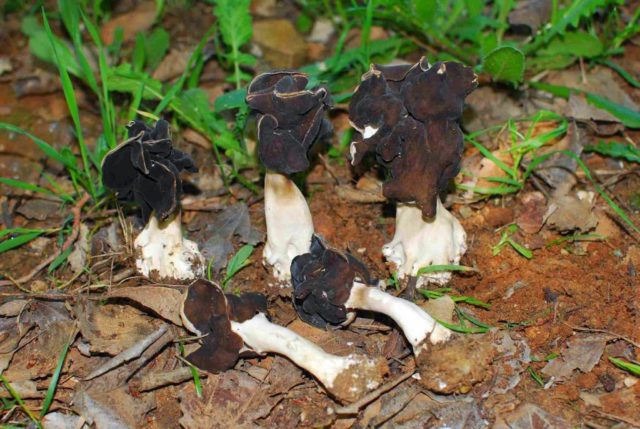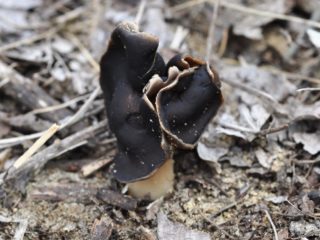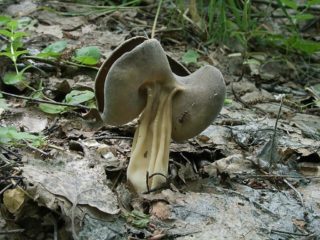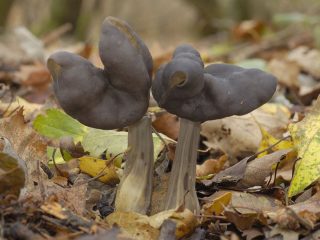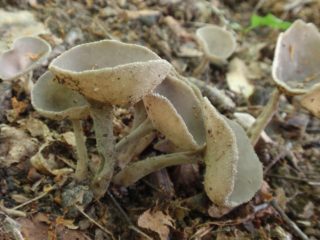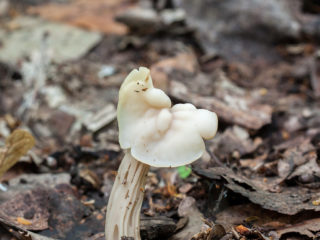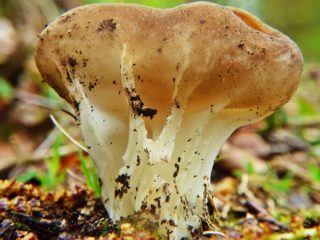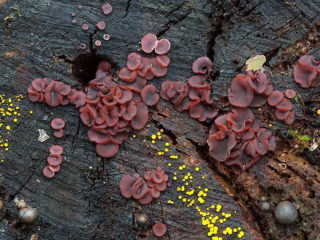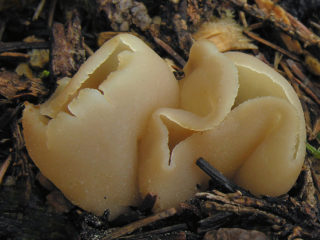Content
Black lobe (Helvella atra) is a mushroom with an original appearance, belonging to the Helvellaceae family, from the Lobster genus. Other scientific name: Black leptopodia.
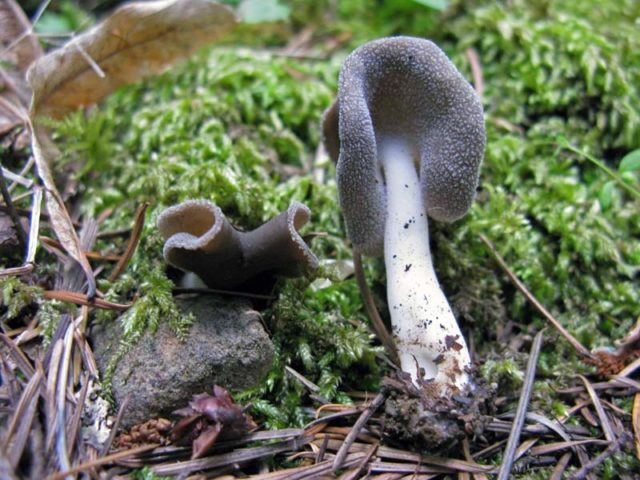
Black lobe is extremely rare in our forests.
What does a black paddle look like
Only the fruiting bodies that have appeared have the appearance of a kind of saddle on a pedicle or a fractured disc. The hat has a rounded centerline fold, whose outer corners are noticeably raised above the horizontal. The halves of the cap are strongly lowered down almost in a straight line or slightly rounded inward, the edge is often accreted to the stem. As it develops, the surface bends in bizarre waves, changes to shapeless lumpy. The edges can be noticeably turned outward, exposing the inner surface, or, conversely, hug the leg with a kind of cape.
The surface is matt, dry, slightly velvety. Gray to dark gray with brown or bluish tinge and shapeless blue and black spots. The color may darken to brownish black. Inner surface, hymenium, smooth or slightly wrinkled, with pronounced bristles, brownish or gray in color. The pulp is brittle, loose, tasteless. Its color is transparent gray, like wax. The diameter can be from 0.8 to 3.2 cm. The spore powder is white.
The leg is cylindrical, expanding towards the root. Dry, pubescent in the upper part, with longitudinal stripes. The color is uneven, noticeably lighter at the base. Color from beige, gray-cream to dirty bluish and ocher-black. The length is from 2.5 to 5.5 cm, the diameter is 0.4-1.2 cm.
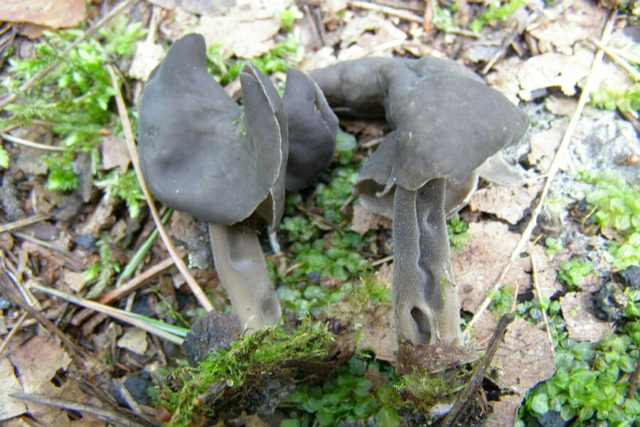
Legs are often crooked, with shapeless dents
Where do black blades grow
Distributed in Japan and China, where it was first found and described. Then it was discovered on the American continent and in other regions of Eurasia. It is extremely rare in Russia, and it is a great success to see it.
Prefers deciduous forests, birch forests. Sometimes its colonies are found in pine forests, spruce forests. It grows in large and small groups, with loosely located individual mushrooms. Loves dry places, sandy soils, grassy meadows in gardens and parks. The mycelium bears fruit from June to October.
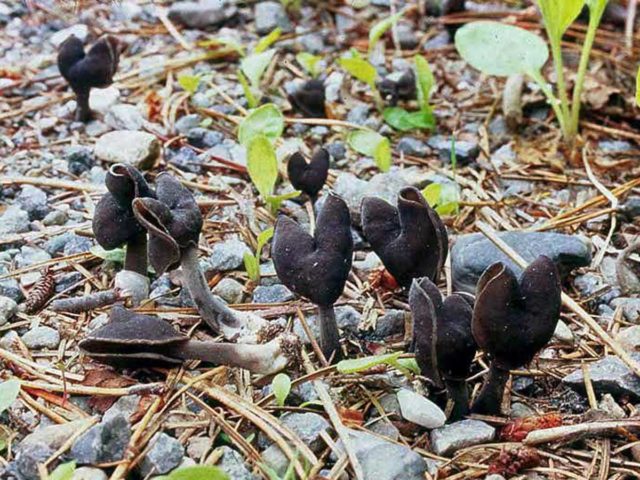
The black lobe feels great on rocky areas.
Is it possible to eat black blades
Black lobster is classified as an inedible mushroom due to its low nutritional value. There is no scientific data on its toxicity. It can be confused with other members of the Helwell species.
Lobules are pitched. Inedible. It has a larger size, fleshy thick leg.
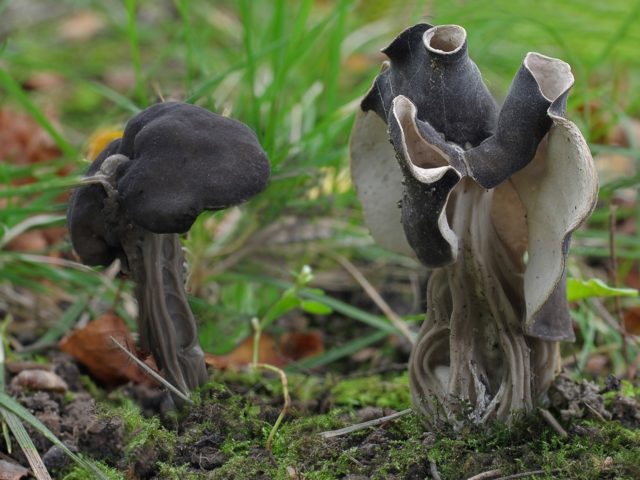
The legs of these fruiting bodies have a characteristic cellular shape.
Lobule petsytsevidny. Inedible. It differs in a noticeably upward-curled edge of the cap.
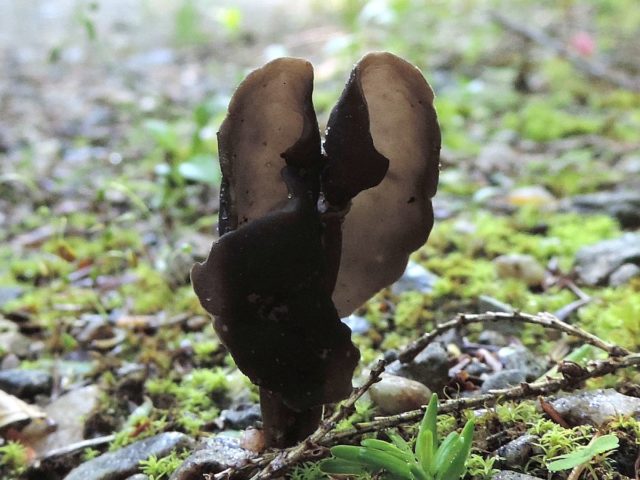
The flesh of the cap is so thin that it shines through
White-legged lobe. Inedible, toxic. It has a pure white or yellowish stem, a light hymenium coloration and a blue-black cap.
Conclusion
Black lobster is an interesting rare mushroom from the Helwell family, a fairly close relative of pecites.Inedible, according to some reports, toxic. It has an extremely low nutritional value, so you should not risk your health. In Russia, several colonies of this fungus have been found in the region of Novosibirsk. Its habitat is China, Europe, North and South America. Grows in deciduous, sometimes coniferous forests from early June to mid-October.
